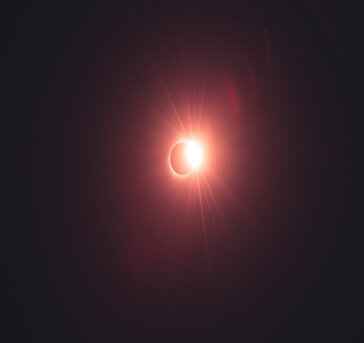Boozy Shakerato X 4
What is a boozy shakerato?
A Boozy Shakerato is an alcoholic version of the classic Italian Caffe Shakerato with the addition of rum and cream. The classic version is a non-alcoholic drink but is also served throughout Italy with Grappa, and is traditionally served in a martini glass.
ingredients: Boozy shakerato
1.5 ounces of cream into the shaker
1 1/2 ounces freshly made espresso cooled down to 122°F/50°C
2 ounces dark rum (40% alcohol)
1 1/2 ounces heavy cream
Can use light cream or half and half but will not taste as good
1/2 ounce simple syrup
Pinch of salt
Copious ice
Poured into a double rocks glass
Combine the ingredients into a shaker and shake
Strain into a chilled double old-fashioned glass
Ingredients for the Boozy Shakerato
the Italian Caffè Shakerato
A Caffè Shakerato is an Italian iced-espresso drink that translates to English as shaken coffee since this drink is cold-espresso mixed with sugar, ice, and shaken until it froths. This drink was traditionally poured into a martini glass after it was vigorously shaken, and was an alternative to those looking to abstain from booze in their coffee.
Dave Arnold recommends making a Shakerato with Milk:
1 1/2 ounces freshly made espresso cooled down to 160°F/60°C
3 ounces whole milk
1/2 ounce simple syrup
Pinch of salt
Copious ice
Jesse - Shaken the boozy shakerato
Combine the ingredients into a shaker and shake like the devil
Strain and serve in chilled glass
Or…pour into a tall glass with ice
Dave Arnold, in his book Liquid Intelligence: The Art and Science of the Perfect Cocktail, says this drink “textures very nicely but must be consumed very quickly. Add milk and your texture problems are gone completely. Milk is a good foam-making machine.”
espresso & cocktails
Dave Arnold, whom I quoted earlier says, “espresso is an ideal cocktail ingredient because, it delivers its substantial flavor in small, cocktail-sized doses. Drip coffee cannot compete with espresso in cocktails; it carries too much water with it.”
Making a super strong cup of drip coffee is not a true substitute for espresso, because it becomes acrid. Even though it will stand-up to dilution, the natural bitterness flavors of coffee became overly acidic, and turn roasted-chocolatey flavors into a burnt and acrid version.
Boozy Shakerato 2
The Boozy Shakerato 2 is the same as Boozy Shakerato, except for one substitution:
Can also use espresso cubes, as did the Pedal Chile Team
3 1/2 ounces whole milk - frozen into ice cubes
These frozen milk cubes replace the heavy cream used in the previous version:
This number 2 version allows for a creamy texture without the use of heavy cream
Regular ice cubes are not used, since they are replaced with the cubes of frozen milk
You should shake this drink with the frozen milk cubes until you hear the slushiness in the shaker and strain into an old-fashioned or martini glass
Next total solar eclipse??? December 14th, 2020 in Chile’s Patagonia. Join us and watch the eclipse…after it’s time to mountain bike down the active volcano
Making Italian Espresso
Wine has approximately 300 chemical compounds that affect the taste, coffee has well over 1,000 different flavor compounds. Just like in wine, the taste of coffee reflects the character of the land, climate, care, method of harvest, the technique used to separate the coffee beans, and the roasting procedure.
After, the blending, grinding, processing and preservation techniques all affect the eventual taste, which means the coffee drinker has a fundamental impact on the flavor of their beverage.
In 1998, the Italian National Espresso Institute (INEI) was established to evaluate the sensory profile of Italian espresso - Espresso Italiano.
“Espresso is best thought of as neither a type of coffee, nor a form of beverage, but as the outcome of a particular preparation process; one in which what are known as the four Ms in Italian (macchina, macinazione, miscela and mano – machine, grind, blend and barista) act in combination to produce the desired outcome”
To create the master cup of espresso, according to the Italian National Espresso Institute:
Water, with a pressure of fewer than 9 bars should be blasted through a portion of 7 grams of ground coffee to a fineness. Nine bars of pressure is 9 times the weight of the pressure at sea level, which is the equivalent of 130 PSI
It should take 25 seconds to deliver 25 milliliters of liquid (which can include cream) into a thick white porcelain cup of 50 ml capacity that is elliptical in shape with a slightly raised bubble at the center that swirls around the liquid as it enters
The water temperature at the group head, which makes the first contact with the coffee should be at 190°F/ 88°C
The temperature in the cup should be 152°F/ 67°C
So what does this mean? Basically, Italian espresso is forced hot water (not boiling) at high pressure through finely ground beans…and fairly fast…..25-30 seconds.
Interesting info: A typical cup of espresso is about 6 times more concentrated than a normal cup of brewed coffee.
Final thought
The boozy shakerato is basically an alcoholic iced latte with a frothy marshmallow head that has a super-smooth texture. For a more coffee forward flavored version, use less cream and simple syrup and shake vigorously, this will yield a flavorful beverage while retaining the smooth and creamy texture.
Jesse is the Director of Pedal Chile, which is a mountain bike tour company in Chile’s Patagonia. Jesse has a Master of Science in Health and Human Performance and enjoys riding singletrack down the active volcano in Chile’s Lake District. I’m an avid reader of non-fiction and enjoy making cocktails, such as the shakerato.
More articles from Pedal Chile:
What is the healthiest beer? And yes, BEER can be healthy
Sources:
Arnold, D. (2014). Liquid intelligence : the art and science of the perfect cocktail. New York, Ny: W.W. Norton & Company.
Making Italian espresso, making espresso Italian. / Morris, Jonathan. In: Food and History, Vol. 8, No. 2, 2010, p. 155-183.









